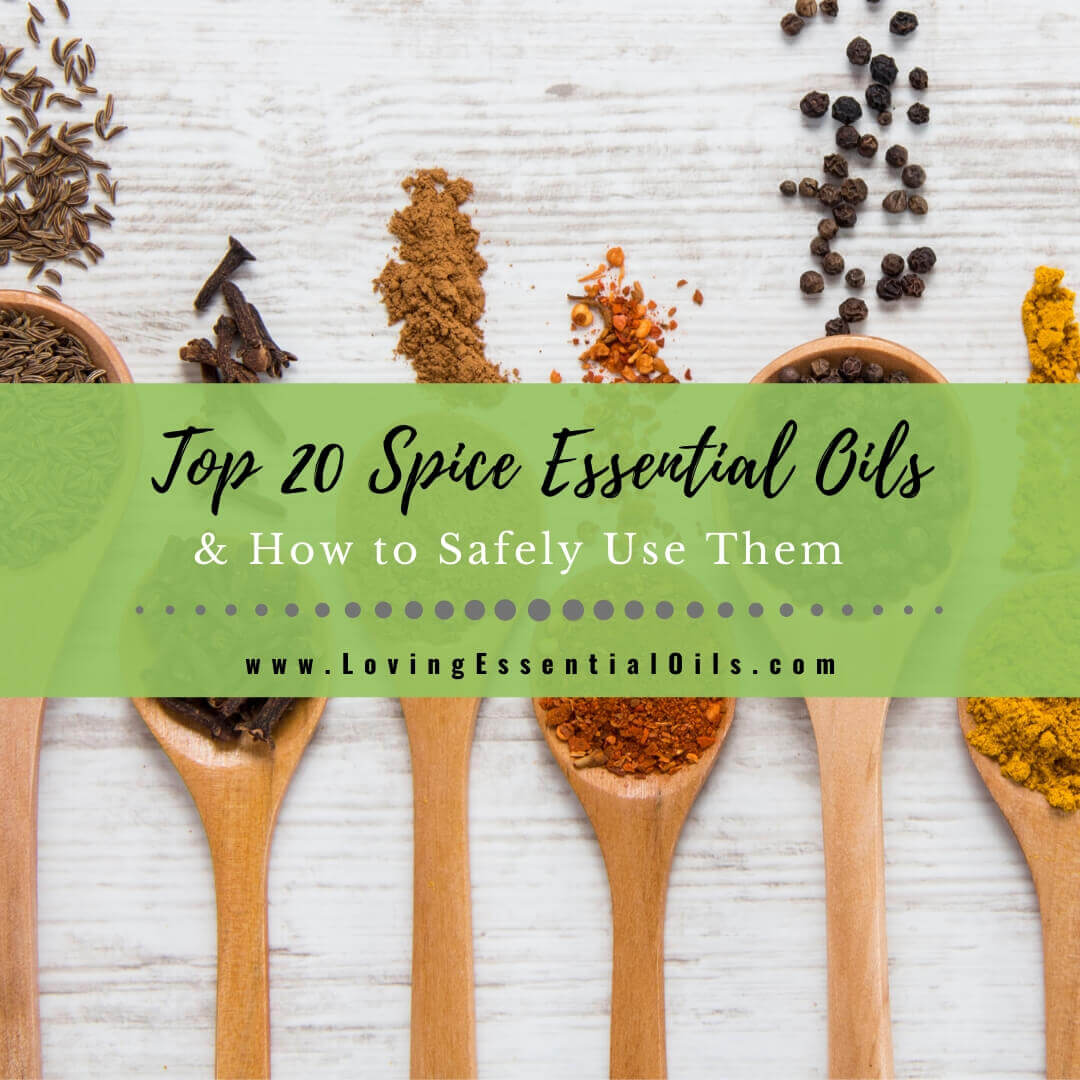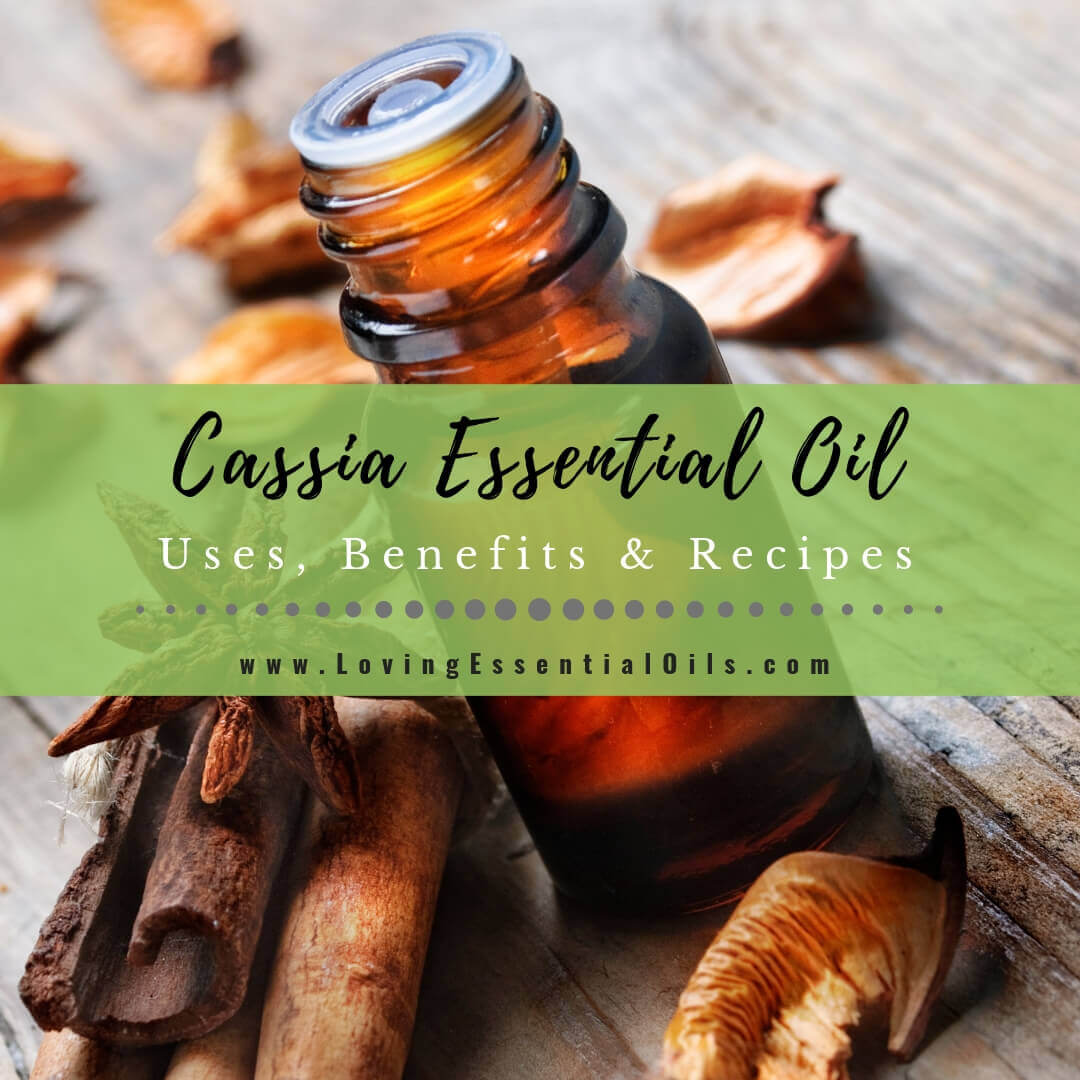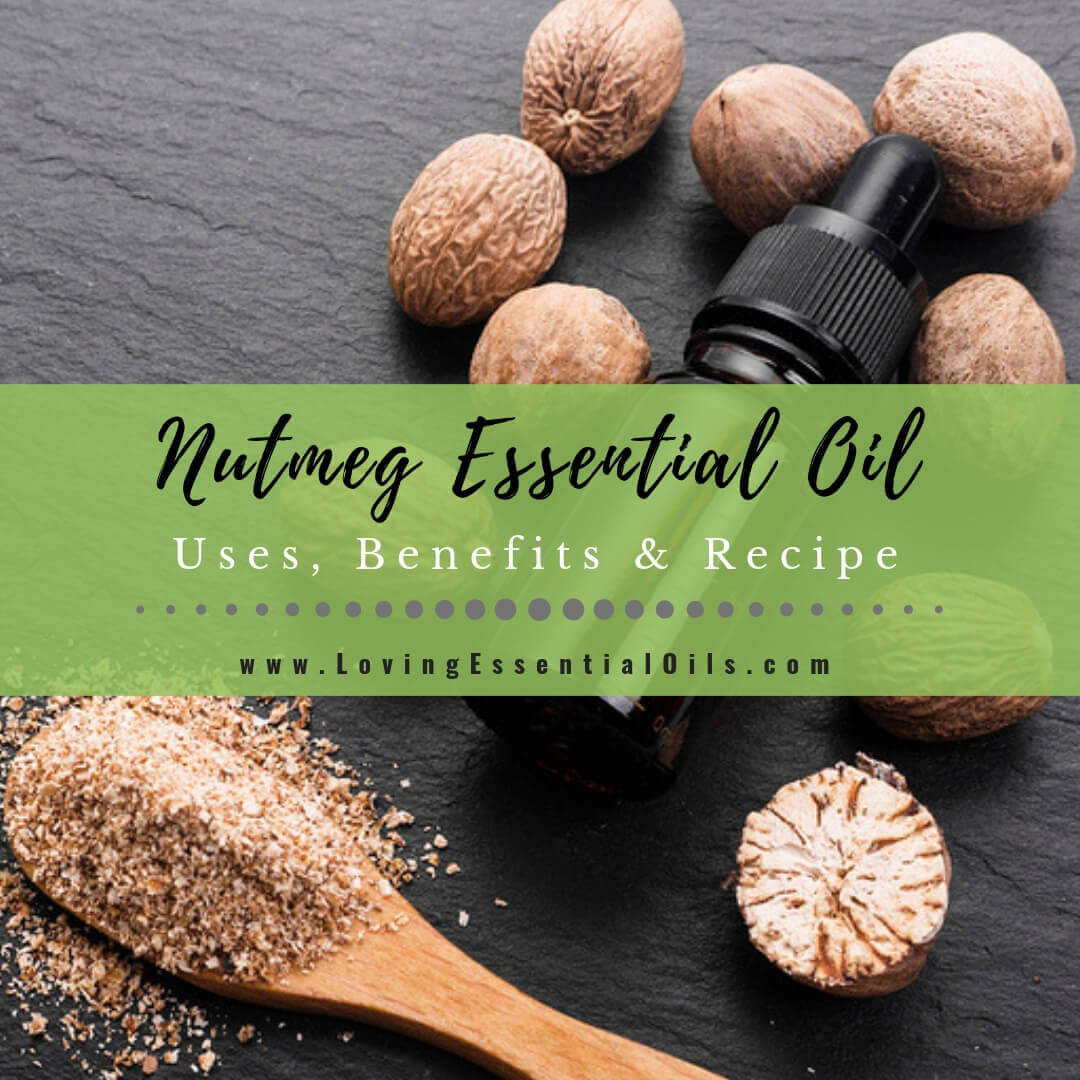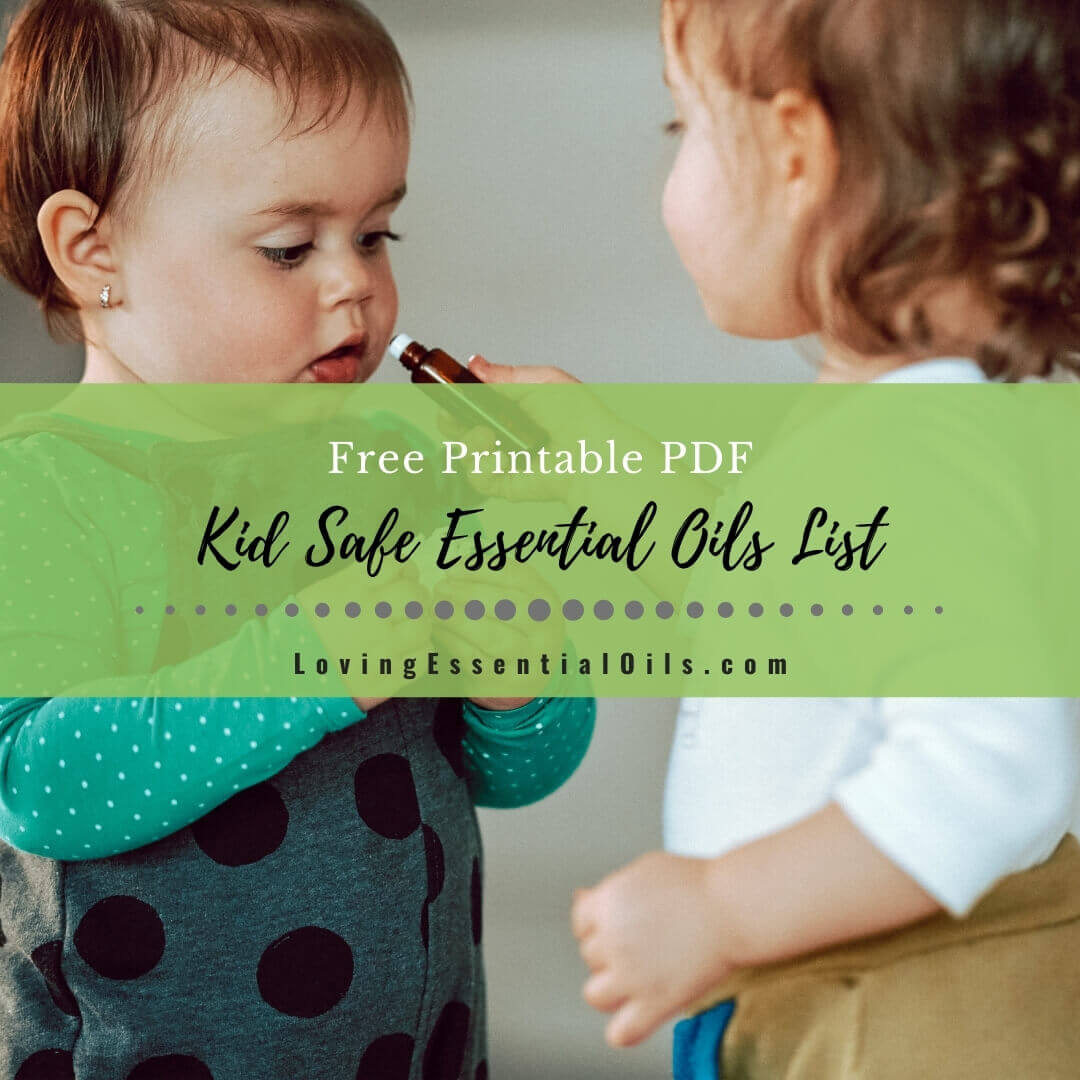Spice essential oils can really liven up a room with their invigorating aromas. They are especially beloved during the fall and winter months and frequently found in favorite seasonal diffuser blends and essential oil recipes.
While they smell wonderful, some of the spice essential oils have precautions that you should be aware of before using.
Some can irritate skin, mucous membranes, or be toxic in large doses. There are several that should be avoided if pregnant or breastfeeding. Read on to learn more about spice essential oils and how to use them safely.
What are Spice Essential Oils Good For?
Spice Essential Oils are popular for their wide range of uses and benefits. There are many different ways that people can use spice essential oils. Some of the most common ways include adding flavor to food, promoting digestion, relieving pain, and fighting inflammation.
Spice Essential Oils are also said to be helpful for supporting anxiety and depression. They can be used to add a pleasant aroma in a room. In addition, spice oils are believed to boost immunity and improve circulation.
It's important to note that not all spice essential oils are created equal. Be sure to research any essential oil before using it, to ensure that it is safe and effective for you.

Top 20 Spice Essential Oils List with Safety Precautions
Spicy essential oils like cinnamon, ginger, and cardamom have warming and comforting properties in aromatherapy. They have rich aromas and are highly fragrant so you may need less drops of oil when using them in DIY recipes and aromatherapy blends.
These spice essential oils come from the root, stem, seed, fruit, or bark of the plant, depending on the oil being extracted. They are steam distilled from the plant part to obtain the oil. You may also find CO2 extractions of a few spice oils, ginger being the most common.
Here you will find the top 20 spice oils that are commonly used in aromatherapy, the uses and benefits, as well as safety precautions that should be noted.
1. Cinnamon Essential Oil (Bark or Leaf) - Cinnamomum zeylanicum
This powerful essential oil is beneficial for both your mental and physical health. Cinnamon is an excellent oil for warming the body, purifying the mind, and boosting immunity. I use this oil in my morning routine for its warming properties that are perfect for cold winter mornings. It can also help to support a healthy metabolism.
- Safety Precautions: Cinnamon Leaf Oil is relatively nontoxic, can possibly cause skin irritation or sensitization. Best to use in moderation and in low dilution when applying topically. Cinnamon Bark oil is much stronger and is best not used on the skin. Avoid both types during pregnancy and when breastfeeding. May inhibit blood clotting.
- Check out our Cinnamon Diffuser Blends
2. Ginger Essential Oil - Zingiber officinale
Did you know that ginger essential oil is good for digestion? Studies have shown that ginger has the ability to relieve nausea, vomiting and stomach pain. Ginger can also help with common colds and sore throat relief. It is an antioxidant and has anti-inflammatory properties too.
- Safety Precautions: Nontoxic and non-irritant except in high dilutions, best used in low dilutions.
- Get Recipe: Warming Ginger Massage Oil
3. Cardamom Essential Oil - Elettaria cardamomum
Cardamom has been shown to have many benefits for mental and physical health. In addition to its sweet aroma, cardamom can be used as an antiseptic for skincare issues and as a digestive aid.
It also helps with relief from menstrual cramps, headaches, muscle aches and pains, colds or flu symptoms and respiratory ailments. The essential oil's therapeutic properties are attributed to its chemical components which include benzoic acid, camphor, carvacrol, and cineole.
- Safety Precautions: Nontoxic, nonirritant, nonsensitizing.
- Read More: Cardamom Spotlight
4. Star Anise Essential Oil - Illicium verum
In the world of essential oils, star anise is a lesser-known oil that has been used historically in perfumes and medicine. It has a spicy, sweet aroma reminiscent of apples and cinnamon.
Star anise is known to have anti-inflammatory properties. Recently, it's been gaining popularity as a natural alternative for joint pain relief because of its ability to soothe sore muscles and joints.
- Safety Precautions: Best used in moderation. Possible skin sensitivity, maximum dermal use 1.75%. Avoid during pregnancy or breastfeeding. Estrogenic, should not be used in endometriosis, estrogen-sensitive cancers. May inhibit blood clotting.
- Related Post: 5 Star Anise Recipes
5. Pink Pepper Essential Oil - Schinus molle
Pink pepper essential oil is a great way to ease discomfort and pain. It can be used topically or aromatically, but both methods have their own advantages.
Aromatically, it's an excellent air purifier that removes odors from your home with its spicy scent. Topically, the oil has soothing properties that soothe muscle aches and pains while fighting inflammation. It also helps reduce stress levels in the body!
- Safety Precautions: Nontoxic, nonirritant, nonsensitizing. Pink Pepper is in the same family as cashews, avoid if allergic.
- Get Recipes: Pink Pepper Diffuser Blends
6. Black Pepper Essential Oil - Piper nigrum
I love using black pepper essential oil for its spicy scent and potent pain relief properties. It's great for anyone with arthritis, back pain, or headaches. It has also been used to aid addiction, to help with weight loss, and to promote better digestion. This potent oil can be used in so many ways to promote wellness.
- Safety Precautions: Nontoxic, nonirritant, nonsensitizing.
7. Nutmeg Essential Oil - Myristica fragrans
Did you know that nutmeg essential oil is an excellent natural remedy for the symptoms of anxiety? It's perfect for those times when you just need a little something extra to help calm your nerves. The best part about using this essential oil is that it doesn't have side effects like many medications do.
Nutmeg oil contains anti-inflammatory properties so those with arthritis or inflammation may benefit from this essential oil as well because it helps to relieve pain and swelling.
- Safety Precautions: Generally nontoxic, nonirritant, and nonsensitizing. Best in low dilution (adult max dilution is 0.8%, 4-5 drops per 1 oz of carrier oil). Use in moderation otherwise can be toxic. Do not use during pregnancy and when breastfeeding.
- Learn More: Nutmeg Essential Oil Spotlight
8. Cassia Essential Oil - Cinnamomum cassia
Cassia essential oil is a powerful and versatile plant-based remedy. It is extracted from the bark of the Cinnamomum cassia tree. The aroma of this plant has been used historically to boost focus, concentration, and memory. The essential oil can also be used for relieving sadness and easing inflammation and pain.
- Safety Precautions: Don't use undiluted on skin, it is a "hot oil" and will cause skin irritation. There is high risk of skin sensitization. Avoid during pregnancy and when breastfeeding.
- Read More: Cassia Essential Oil Spotlight
9. Clove Bud Essential Oil - Eugenia caryophyllata
Clove essential oil is a powerful natural remedy that can relieve inflammation and pain in the body. It benefits various parts of the body, including relieving toothaches. Additional health benefits include relieving congestion, boosting immunity, helping fight bad breath, clearing skin breakouts, and helping with digestion problems (like gas or bloating after eating too much rich food).
Clove essential oil can be applied topically or inhaled through the nose to relieve pain. The soothing scent of clove oil is a great way to add some natural fragrance to your home as well. Be careful when using this oil because it's very potent and could irritate your skin if used without a carrier oil.
- Safety Precautions: Use in moderation. Don't use undiluted on skin, it is a "hot oil" and will cause skin irritation. Avoid during pregnancy and when breastfeeding. Only use clove bud oil, not the leaf or stem oil.
- Read More: Clove Essential Oil Spotlight
10. Allspice Essential Oil - Pimenta dioica
Allspice is a spice often used in cooking and baking with many benefits that can be attributed to the active compound, eugenol. Allspice essential oil has been linked to alleviating pain and reducing inflammation. It can also be used to help you sleep better at night, reduce stress levels, provide relief for sore muscles and joints, and much more!
- Safety Precautions: Nonirritant when heavily diluted (adult Max Dilution: 0.15% ), sensitization possible. Use in moderation, potentially toxic with prolonged use. Avoid during pregnancy and when breastfeeding.
11. Anise Essential Oil (aka Aniseed) - Pimpinella anisum
Anise essential oil is a great way to stay focused, alert and energized. It is distilled from the seeds of the anise plant which are grown in Egypt, India and China. The scent of this oil is sweet and licorice-like. The aroma of this oil helps with headaches, nausea, stomach aches and other ailments as well.
It can be used in aromatherapy or massages to help with pain relief and relaxation. In addition, it also has antifungal and antibacterial properties which make it useful in natural household cleaning products.
- Safety Precautions: Can cause dermatitis in some individuals, avoid with allergic and inflammatory skin conditions. Large doses it is narcotic, use in moderation. Avoid during pregnancy and when breastfeeding. Estrogenic, should not be used in endometriosis, estrogen-sensitive cancers.
12. Sweet Fennel Essential Oil - Foeniculum vulgare
Fennel essential oil possesses anti-inflammatory and antioxidant properties. It has been used as a digestive aid, to soothe an upset stomachm and for menstrual cramps. It can also be used as a home remedy for congestion and coughs. Mix few drops with unscented lotion and apply topically or diffuse into the air to help relieve congestion.
- Safety Precautions: Use in moderation. Do not use during pregnancy or breastfeeding. People who suffer from epilepsy should not use.
13. Cumin Essential Oil - Cuminum cyminum
One of the most commonly used spices in cooking, cumin is also a popular essential oil. It's been used to help with digestion and soothe sore muscles. This versatile spice oil might even be able to improve your mood!
Cumin oil is an excellent option to combat aches and pains because it contains properties that can help soothe inflammation, relieve pain, and keep your body functioning at its best. You can also use this oil aromatically by diffusing it or inhaling it through a tissue or handkerchief.
- Safety Precautions: Nontoxic, nonirritant, and nonsensitizing. Phototoxic oil so use caution. Avoid during pregnancy.
14. Celery Seed Essential Oil - Apium graveolens
Celery seed essential oil is made from the seeds of celery plants. It has a light, sweet, earthy scent with woodsy undertones. The aroma can help to reduce stress and anxiety while improving mental clarity and focus. You can use this essential oil topically to treat skin conditions or for digestive issues like gas, bloating, constipation, diarrhea, stomach pain and nausea.
Celery seed can be diffused to enjoy the aromatic benefits. Many people also use it to help with allergies by inhaling the aroma when they are experiencing allergy symptoms such as congestion or sneezing fits.
- Safety Precautions: Nontoxic, nonirritant, nonsensitizing. Avoid during pregnancy.
15. Galangal Root Essential Oil - Alpinia galanga
Galangal root essential oil is an excellent choice for those looking for natural relief of aches and pains. Not only does it work wonders on sore muscles, but also has anti-inflammatory properties which are perfect for soothing inflammation caused by arthritis. You can use the galangal essential oil in a diffuser to help with your mood or just apply it topically to any area that needs some loving care.
- Safety Precautions: Nontoxic, nonirritant when diluted.
16. Caraway Essential Oil - Carum carvi
Caraway Essential Oil is a great addition to your natural wellness cabinet. It helps with digestive issues, pain relief, anxiety and insomnia. Caraway oil has properties that are calming and sedative which makes it perfect for those who can't sleep at night or have trouble focusing on daily tasks due to stress.
- Safety Precautions: Nontoxic, nonsensitizing, may cause dermal irritation, use in low dilution.
17. Plai Essential Oil - Zingiber cassumunar
Plai essential oil is a soothing, calming scent that can help you relax and have a better night's sleep. Plai helps to reduce anxiety and tension while also being an antidepressant. The aroma of plai promotes the feeling of contentment and improved moods.
- Safety Precautions: Nontoxic, nonirritant, and nonsensitizing.
18. Tumeric Essential Oil - Curcuma longa
There are many benefits to using tumeric essential oil. It's great for fighting off the common cold, it can be used as a natural acne treatment, and it can help with digestion. Tumeric oil can help with pain relief, inflammation, and even detoxifying your body. It's best to use tumeric as part of a blend because it has a very strong smell.
- Safety Precautions: Use in moderation, the component tumerone can be moderately toxic and irritant in high concentration. Possible sensitization. Best avoided during pregnancy.
19. Ho Wood Essential Oil - Cinnamomum camphora ct linalol
Are you looking for a natural essential oil to help with stress, anxiety, insomnia, and pain management? Ho wood essential oil can help. It has calming effects that can be easily integrated into your everyday life. The easiest way to incorporate ho wood oil into your daily routine is by diffusing it at home or work.
You can also apply it topically on sore muscles or joints by mixing 1-2 drops of ho wood with fractionated coconut oil or jojoba oil. You can also apply onto your chest when feeling anxious. If you're struggling with sleep issues, try using it before bedtime!
- Safety Precautions: Nontoxic and nonirritant, possible sensitization in some individuals.
20. Coriander Essential Oil - Coriandrum sativum
Coriander essential oil has a woody, earthy scent that is calming and grounding. It can be used to help relieve stress, anxiety, nervousness and insomnia. In aromatherapy it is often mixed with lavender to provide relief from nightmares or other sleeping disturbances.
Additionally coriander essential oil may also be helpful for menstrual cramps and nausea. Mixing coriander essential oil with a carrier oil before bed will promote restful sleep while keeping one's mind clear of anxious thoughts throughout the night.
- Safety Precautions: Generally nontoxic, nonirritant, nonsensitizing. Use in moderation, can be stupefying.
- Learn More: Coriander Spotlight
Which Spice Oils are the Safest?
After reviewing the above list, you may notice that there are a few essential oils that have little to no safety concerns. Here are the 6 Safest Spice Essential Oils that are most commonly used in aromatherapy:
- Ginger
- Cardamom
- Plai
- Coriander
- Pink Pepper
- Black Pepper
How to Use Spice Essential Oils on Your Skin
Have you ever wondered how to dilute essential oils? Diluting essential oils is extremely important when it comes to using your essential oils responsibly.
Essential oils are highly concentrated and we should use care when using them especially on the skin. Not to mention they can be costly and use a lot of resources to make just one bottle so its best to use the least amount needed to get desired results.
It can also help you avoid negative effects like skin irritation and discomfort that some oils can cause. To use essential oils most effectively, diluting is a must. Don't worry, it's easy.
There are a few ways to dilute essential oils but the main way is to use a carrier oil, such as jojoba or fractionated coconut oil, and mix it with the essential oil before applying to your skin.
Some other products that can be used for dilution before applying essential oils to skin are butters (like shea butter or mango butter), aloe vera, and unscented lotions/creams. For bathing try adding a few drops of an essential oil with castile soap or vegetable glycerin into your bath water to enjoy the aromatic and topical benefits!
Spicy Essential Oil Diffuser Blends
Are you looking for a way to spice up your life? Well, we have what you need, spice essential oil diffuser blends!
These spicy oil blends can help give you an extra boost in your day-to-day routine. They also offer other health benefits such as aiding in digestion or helping insomnia sufferers get better sleep at night time.
Spice Cake Diffuser Blend |
When you bake a spice cake it can make your home smell wonderful! Skip the baking and diffuse this spice cake oil blend instead to infuse your home with that spicy goodness.
Directions: Add drops of essential oils to your diffuser with the recommended water for your machine. Read more about diffusing essential oils. |

Spicy Kitchen Diffuser Recipe |
No doubt that spice essential oils will bring thoughts of food and cooking to the mind when inhaled. Here is a yummy diffuser blend with spice and everything nice!
Directions: Add drops of essential oils to your diffuser with the recommended water for your machine. |

Spicy Morning Diffuser Blend |
Grapefruit pairs perfectly with spice oils. Get up and get going with this spice diffuser blend, it is sure to wake up your senses.
Directions: Add drops of essential oils to your diffuser with the recommended water for your machine. |

Spice Essential Oil Combinations
Spice essential oil combinations can be used to create powerful blends that can have many benefits. For example,
There are many different spice essential oil combinations that can be used to create desired effects. Some spice oils should not be used together, so it is important to consult with an expert before creating a blend.
1. Cinnamon and Orange: The combination of cinnamon and orange essential oils can be used to boost energy levels and circulation.
2. Ginger and Clove: This blend is another popular combination of spice oils that are known to help improve digestion.
3. Vanilla and Cinnamon: This essential oil blend is perfect for Fall! The combination of vanilla and cinnamon essential oils will make your home smell great.
With the right combination of spice essential oils, it is possible to create a potent and effective remedy for many different needs.
General Essential Oil Precautions
Never use essential oils undiluted, in eyes or mucous membranes. Do not take internally unless working with a qualified practitioner. Keep out of reach from children.
Use essential oils with extreme caution on children, be sure you have researched the oil and that it is safe for use on kids. Plant Therapy clearly labels their oils "KidSafe" on the bottle if the oil can be used for children ages 2–10.
If applying an essential oil topically (on your skin), you may perform a small patch test to an insensitive part of the body, use 1-2 drops in a teaspoon of carrier oil like jojoba oil, read more here.
If you are pregnant, breastfeeding, epileptic, or under a doctor’s care, consult your physician. For more information on oil safety issues here.
Newbie to Oils? Read More: Essential Oils for Beginners
Spice Essential Oil Recipes
I included several links in this blog post that include spice essential oils, diffuser blends, and DIY recipes. Here are a few more blog posts that highlight these spicy oils.
Fall Diffuser Blends
Fall is the perfect time to cozy up with some delicious fall diffuser blends! With autumn comes the changing of the leaves, cool weather, and pumpkin spice everything. Get our Fall Diffuser Blends that will make your home smell like fall and get you in the seasonal spirit!
Pumpkin Spice Essential Oil Blend
Pumpkin Spice essential oil blend is perfect for Fall! The combination of spice essential oils will satisfy your seasonal indulgence and put a smile on your face. Here is our guide on Pumpkin Spice Essential Oil Recipes.
Cardamom Essential Oil Soap
Cardamom essential oil is known for its ability to help improve circulation, detoxify the skin, and reduce inflammation. This cardamom essential oil soap recipe is gentle enough for use on sensitive skin, making it an ideal choice for those who suffer from conditions such as eczema or psoriasis.
In addition, cardamom essential oil has a pleasant, spicy aroma that can help to boost your mood and energy levels. If you are looking for a soap that offers a wide range of benefits, cardamom essential oil soap is a great option to consider.
Aromatherapy Room Sprays
Looking for oil blends that smell deliciously good? Check out our dessert inspired aromatherapy room spray with essential oils that can be enjoy all seasons. Many of the essential oil blends include spice oils to give them their yummy aroma and spicy scents.
Final Thoughts on Spice Essential Oil Uses and Benefits
Spice essential oils can offer numerous health benefits. Some studies have shown that these oils can help to improve circulation, relieve pain, and reduce inflammation. In addition, they have also been shown to boost the immune system and fight off infections. As a result, spice essential oils can be a great way to improve the overall health and well-being when used safely.
Share on Pinterest






